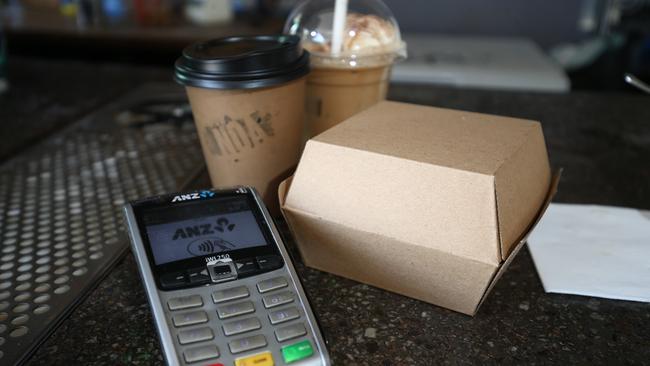ACCC greenlights BPAY, eftpos, New Payments Platform merger
The competition regulator has approved the merger of BPAY, eftpos and the New Payments Platform, which is a major coup for the big 4 banks as well as Woolworths and Coles.

The major banks and retail giants Woolworths and Coles have secured a win in their bid to merge BPAY, eftpos and New Payments Platform Australia, with the competition regulator approving the deal after accepting a court-enforceable undertaking from the parties.
The approval comes after the Australian Competition & Consumer Commission in June warned it was leaning toward opposing the merger on competition concerns after retailers and small businesses argued it would result in higher transaction fees for merchants.
In the end, the ACCC found that, at a high level, the services of the three companies “do not compete closely”.
“We do not consider that the merger of these parties will substantially lessen competition in any payments market, after taking into account the court-enforceable undertaking,” ACCC chair Rod Sims said.
“We considered a number of potential impacts on competition, including concerns raised by industry participants about the impact of the amalgamation on eftpos’ services and least cost routing.”
BPay, eftpos and NPPA are owned by the major banks, while Coles and Woolworths are eftpos shareholders. The parties agreed to merge in December with a view to completing the deal in the second half of 2021.
The new entity, Australian Payments Plus, will be chaired by former AMP chair Catherine Brenner, but each of the three parties will retain their brands.
Addressing the chief concern of retailers and small businesses — the prospect that least cost routing, which helps merchants reduce transaction fees, would be abandoned — Mr Sims said the undertaking would mean no adverse impact on the low-fee initiative.
“The ACCC recognises that rapid change is taking place in the sector, but ultimately it was satisfied that, with the undertaking, the amalgamation will not have a significant adverse impact on eftpos’ services or the availability of least cost routing,” Mr Sims said.
Least cost routing allows merchants to choose the payment scheme that processes transactions when consumers use a dual network debit card. It helps reduce the fees merchants pay for the processing of debit card payments.
“The Reserve Bank of Australia, the regulator of payment systems in Australia, will also continue to take action to safeguard the availability of least cost routing,” Mr Sims said.
“Together with the commitments made in the undertaking, the oversight of the Reserve Bank will minimise the risk that eftpos is diminished or that least cost routing will become less available.”
The undertaking, as accepted by the regulator, will see the parties ensure, for a period of four years, that eftpos “will do everything in its control” to make least-cost routing available and to promote it, as well as ensuring the eftpos infrastructure and services are maintained.
The merger parties will also have to ensure that eftpos and NPPA develop and make available a set of prescribed services, including fraud prevention measures and technical developments that will allow online and in-app payments to be made using eftpos debit cards.
The merger parties have also committed to ensuring that BPAY, eftpos and NPPA agree an industry wide standard supporting payment with QR codes by the end of June 2022.
“We accepted the undertaking because we consider it will help ensure that eftpos will develop and improve its debit-based payment services for point of sale, online and in-app payments,” Mr Sims said.
Ms Brenner, who chaired AMP until she stepped down in 2018 after damning revelations at of the bank’s conduct were aired at the financial services royal commission, detailed the next steps following the merger approval.
“Over the coming months, the three entities will complete a number of corporate restructuring steps, including transitioning to a single board structure.
“This includes the three entities moving into the same premises and establishing working groups for staff to share ideas and work streams.”
The transition to the single board structure is expected to be complete by Christmas.
Ms Brenner said she was also in the process of recruiting three independent directors who will sit on the board alongside nine nominee directors who represent the major shareholders.
COSBOA CEO Alexi Boyd said small businesses needed to be represented on the board.
“That representation is really important for keeping the new entity, Australian Payments Plus, accountable, making sure that the least cost routing journey continues and making sure it’s best for small businesses,” she said.
The small business peak body would be keeping a close watch on Australian Payments Plus to make sure it was keeping to the terms of the undertaking, she added.
“We’re really pleased to see that the ACCC saw fit to impose a four-year undertaking, which was extended from what they had originally thought to impose, and also for the continued focus on least cost routing and the recognition that it needs to happen in person, online, over various devices and various methods of payment which was good,” Ms Boyd said.




To join the conversation, please log in. Don't have an account? Register
Join the conversation, you are commenting as Logout